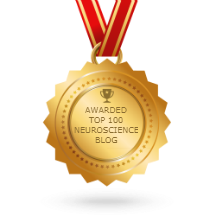-
17
Sep
The successful candidate has a strong background in physics and/or mathematics, is competent in applying numerical methods, and shows some grasp of, and great interest in, computational neuroscience. The main tasks of this research project involve theoretical calculations, computer simulations and experimental data analyses, using MATLAB. Specific methods and relevant background knowledge will be taught to the candidate “on the job”, providing an excellent opportunity for an enthusiastic researcher to specialize in an exciting new field.
Research topic
Neuronal oscillations in the gamma frequency range (30-100 Hz) play a crucial role in information processing. Since gamma activity is effective in activating other neurons, the question arises which mechanism prohibits gamma activity to activate an ever-increasing number of neurons. Many focal epileptic seizures start with an increase of gamma activity with abnormal spreading. The special role of inhibitory interneurons in the generation of a robust gamma rhythm, will be investigated.
The hypothesis that some inhibitory regulation is disturbed in epileptic patients will be tested using mathematical analyses and extensive computer simulations of interactions between single neurons and populations of neurons. The results of these approaches will be compared to data in large databases at the Academic Hospital of the University Utrecht, obtained by subdural recordings in patients with normal task-related gamma activity and with epileptic seizures. The results of this project may allow pro-active recognition of starting epileptic activity.
Research environment
The Department of Biophysics of the Radboud University Nijmegen is part of the Centre for Neuroscience (http://www.ru.nl/dcn) within the Donders Institute for Brain, Cognition and Behaviour (http://www.ru.nl/donders/). The Donders Institute hosts many excellent researchers and owns advanced infrastructure and equipment, such as a PC-cluster for fast computer simulations.
The offered PhD position is part of a large project in Computational Life Science, funded by the Dutch Science Foundation (NWO). The grant also includes 2 post-docs and another PhD student, and is a collaboration of several senior researchers at Radboud University and at the Mathematics Department of the University of Twente.
Living in The Netherlands / Nijmegen
The Netherlands are well-known as a liberal and modern European country with a unique and distinguished culture. It is one of most densely populated urban regions of the world, but the vibrant border city of Nijmegen (http://www.nijmegen.nl/) also offers access to the beautiful Dutch/German “Lower Rhine” countryside.
Salary
Estimated gross salary: from about €2050/month in the first year to €2600/month in the last year (Dutch University Salaryscale 10), plus an 8% annual supplement and end-of-year bonus.
For more information, please contact Prof. Dr. C. Gielen (S.Gielen_at_donders.ru.nl).
- Published by Dimitrios A. Adamos in: Jobs
- RSS feed subscription!

 Neurobot via RSS
Neurobot via RSS
